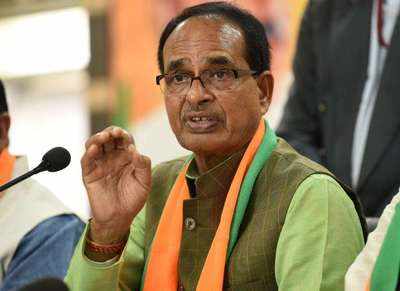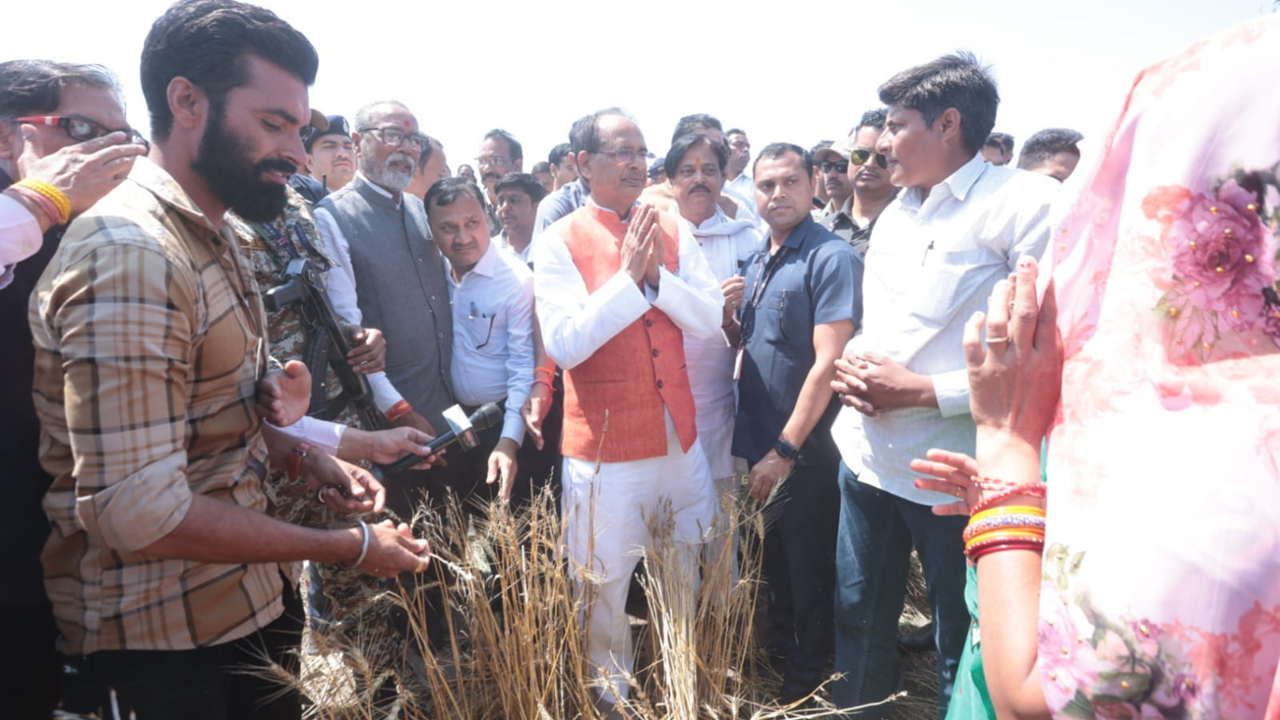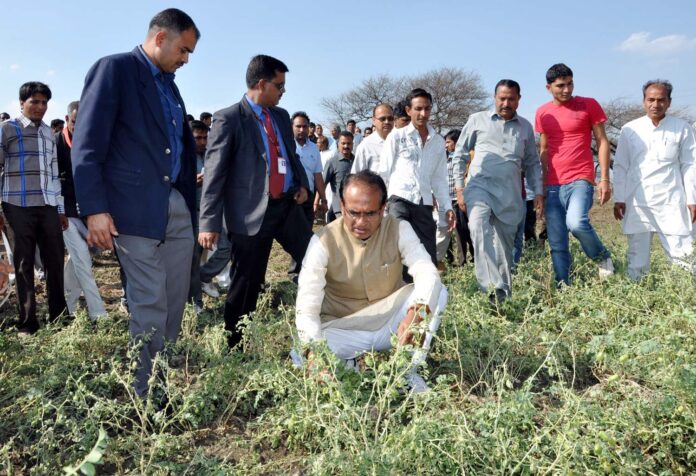In a significant move aimed at empowering farmers, Chief Minister Shivraj Singh Chouhan announced a substantial increase in financial assistance provided to farmers under the Centre’s PM-Kisan Samman Nidhi in Madhya Pradesh. The announcement, made during the ‘Kisan Kalyan Mahakumbh’ event in Rajgarh, also witnessed Defence Minister Rajnath Singh taking a dig at Congress leaders, accusing them of opportunistically adopting a “seasonal Hindu” stance for political gains.
Chouhan Amplifies Farmer Aid, Blames Congress for Burden
Under the new initiative, the aid provided to farmers under the PM-Kisan Samman Nidhi will be augmented by ₹2,000. This additional support from the state government complements the existing ₹6,000 disbursed by Prime Minister Narendra Modi to farmers through the scheme. Furthermore, Chouhan revealed that farmers in Madhya Pradesh would now receive a monthly allowance of ₹1,000, akin to the beneficiaries of the ‘Ladli Behna’ scheme for women.
Chouhan didn’t shy away from holding the previous Congress-led state government responsible for exacerbating the farmers’ burden. He highlighted the false promises made by former Chief Minister Kamal Nath, which led farmers to default on loan interest payments. Consequently, the interest on farm loans ballooned to ₹2,123 crore. In an effort to alleviate this burden, the government has taken the initiative to waive off ₹1,500 crore in interest for approximately 800,000 farmers. The first phase of this intervention witnessed the government depositing the interest amount on Tuesday.
Meanwhile, Rajnath Singh’s criticism of the Opposition party came in response to Priyanka Gandhi Vadra’s recent visit to Jabalpur, where she offered prayers to the Narmada River before announcing five election promises on behalf of the Congress. Singh derided certain Congress members as “seasonal Hindus,” questioning their sudden affinity for Narmada ji. He also highlighted the party’s recent use of Lord Hanuman’s mace during their events, contrasting it with their earlier reluctance to invoke the names of Lord Ram and Lord Hanuman. Singh further lambasted the Congress for making lofty guarantees without fulfilling them, while lauding the BJP’s track record of keeping its promises, notably the construction of the grand Ram Temple in Ayodhya.
Singh’s praise extended to Chief Minister Chouhan, as he expressed confidence in the government’s ability to secure a greater number of seats in the upcoming assembly elections. However, former Chief Minister Kamal Nath, who also serves as the state Congress chief, dismissed Chouhan’s announcement as a mere election ploy. Nath took to Twitter to assert that the Bharatiya Janata Party (BJP) is the most anti-farmer party in the country, with Chouhan being the epitome of an anti-farmer Chief Minister. Nath accused Chouhan of resorting to new promises in a desperate attempt to woo farmers, despite his lackluster track record over the past 18 years.
In conclusion, Chouhan’s recent announcement to increase aid to farmers, coupled with the waiver of farm loan interest, reflects a substantial effort by the state government to support and uplift the agricultural community. While political jibes and accusations continue to overshadow the discourse, the tangible steps taken to alleviate the farmers’ burden cannot be overlooked. As the upcoming assembly elections draw near, the farmers of Madhya Pradesh will play a crucial role in determining the political landscape and the future of agricultural policies in the state.
Chouhan Unveils Revolutionary Surge in Aid to Farmers

The announcement made by Chief Minister Shivraj Singh Chouhan regarding increased aid to farmers in Madhya Pradesh has generated significant interest and speculation as the state gears up for the upcoming assembly elections. The move is seen as a strategic decision to garner support from the farming community, which forms a substantial vote bank in the region.
By augmenting the financial assistance provided under the PM-Kisan Samman Nidhi scheme by ₹2,000, Chouhan aims to alleviate the financial burdens faced by farmers and demonstrate the state government’s commitment to their welfare. This decision comes in addition to the existing ₹6,000 provided by the central government, making it a noteworthy increment in financial aid for farmers.

